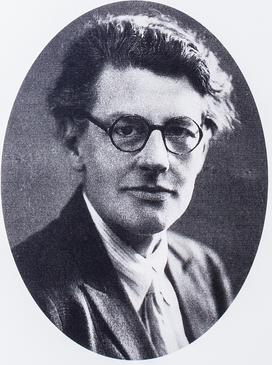Euphan Maxwell
Scottish physician and medical researcher
Euphan Maxwell (1887–1959) was a pioneering Scottish physician and medical researcher known for her contributions to the field of public health and tuberculosis research. Her work significantly advanced the understanding and treatment of tuberculosis in the early 20th century.
Early Life and Education[edit | edit source]
Euphan Maxwell was born in 1887 in Edinburgh, Scotland. She was the daughter of a prominent family, which valued education and encouraged her academic pursuits. Maxwell attended the University of Edinburgh, where she excelled in her studies and graduated with a degree in medicine in 1910. Her early interest in public health and infectious diseases shaped her future career.
Medical Career[edit | edit source]
After completing her medical degree, Maxwell began her career at the Royal Infirmary of Edinburgh, where she gained valuable clinical experience. Her interest in tuberculosis led her to join the Scottish Tuberculosis Service, where she worked on developing strategies to combat the disease.
Tuberculosis Research[edit | edit source]
Maxwell's research focused on the epidemiology and treatment of tuberculosis, a major public health issue at the time. She conducted extensive studies on the transmission of the disease and the effectiveness of various treatment methods. Her work contributed to the development of more effective public health policies and treatment protocols.
Contributions to Public Health[edit | edit source]
Maxwell was a strong advocate for public health education and preventive medicine. She believed in the importance of educating the public about tuberculosis and other infectious diseases to reduce their spread. Her efforts in public health education were instrumental in raising awareness and improving health outcomes in Scotland.
Later Life and Legacy[edit | edit source]
In her later years, Maxwell continued to work in public health, focusing on improving healthcare access and quality for underserved populations. She retired in 1950 but remained active in medical circles, mentoring young physicians and advocating for public health initiatives.
Euphan Maxwell passed away in 1959, leaving behind a legacy of dedication to public health and medical research. Her contributions to the understanding and treatment of tuberculosis have had a lasting impact on the field.
Related Pages[edit | edit source]
Search WikiMD
Ad.Tired of being Overweight? Try W8MD's physician weight loss program.
Semaglutide (Ozempic / Wegovy and Tirzepatide (Mounjaro / Zepbound) available.
Advertise on WikiMD
|
WikiMD's Wellness Encyclopedia |
| Let Food Be Thy Medicine Medicine Thy Food - Hippocrates |
Translate this page: - East Asian
中文,
日本,
한국어,
South Asian
हिन्दी,
தமிழ்,
తెలుగు,
Urdu,
ಕನ್ನಡ,
Southeast Asian
Indonesian,
Vietnamese,
Thai,
မြန်မာဘာသာ,
বাংলা
European
español,
Deutsch,
français,
Greek,
português do Brasil,
polski,
română,
русский,
Nederlands,
norsk,
svenska,
suomi,
Italian
Middle Eastern & African
عربى,
Turkish,
Persian,
Hebrew,
Afrikaans,
isiZulu,
Kiswahili,
Other
Bulgarian,
Hungarian,
Czech,
Swedish,
മലയാളം,
मराठी,
ਪੰਜਾਬੀ,
ગુજરાતી,
Portuguese,
Ukrainian
Medical Disclaimer: WikiMD is not a substitute for professional medical advice. The information on WikiMD is provided as an information resource only, may be incorrect, outdated or misleading, and is not to be used or relied on for any diagnostic or treatment purposes. Please consult your health care provider before making any healthcare decisions or for guidance about a specific medical condition. WikiMD expressly disclaims responsibility, and shall have no liability, for any damages, loss, injury, or liability whatsoever suffered as a result of your reliance on the information contained in this site. By visiting this site you agree to the foregoing terms and conditions, which may from time to time be changed or supplemented by WikiMD. If you do not agree to the foregoing terms and conditions, you should not enter or use this site. See full disclaimer.
Credits:Most images are courtesy of Wikimedia commons, and templates, categories Wikipedia, licensed under CC BY SA or similar.
Contributors: Prab R. Tumpati, MD

